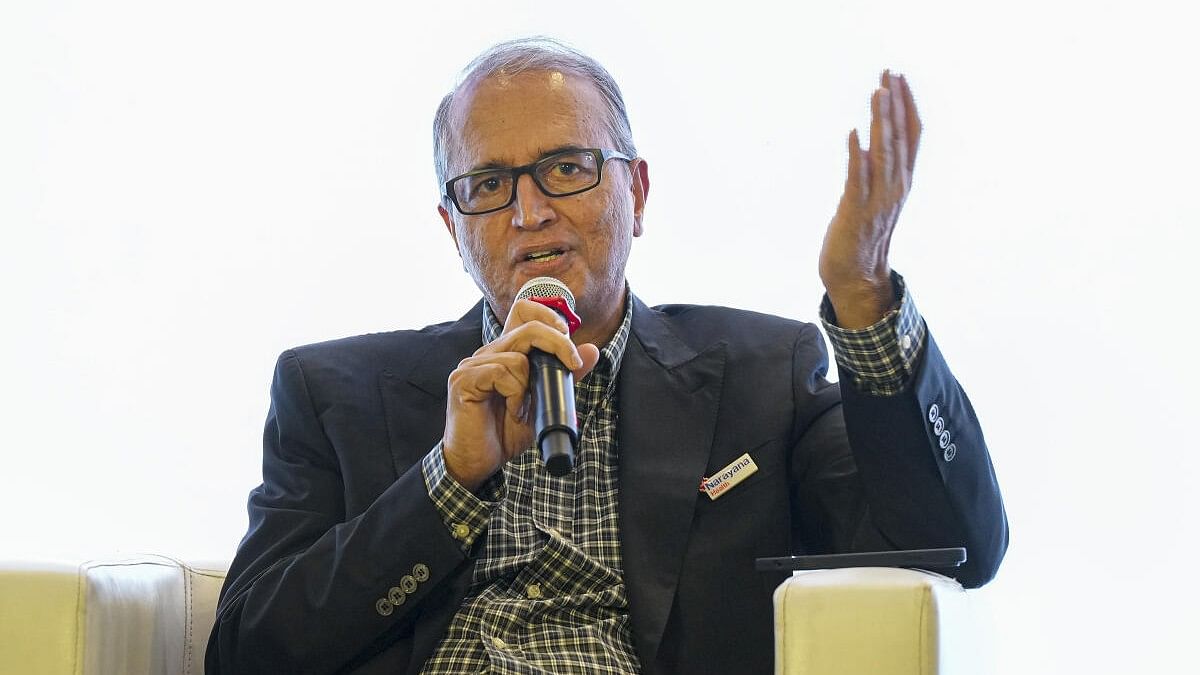
Narayana Health Chairman Devi Shetty during the launch of the Narayana Health Insurance 'ADITI' at a press conference, in Bengaluru, Monday, July 1, 2024.
Credit: PTI Photo
Bengaluru: In India, there is a need for 70 million surgeries, but only 20 million are being performed as people do not have the means to undergo even bellwether procedures (caesarean delivery, laparotomy and treatment of open fracture), said Dr Devi Shetty, chairman of Narayana Health.
To bridge the gap, Narayana Health has introduced its first health insurance product, ‘Aditi’ on July 1.
Launching the product, Dr Shetty hoped that in near future, India will usher in a strategic shift where quality health care will not only mean strengthening infrastructure and access to malaria, TB and HIV but also surgical procedures.
Aditi, being introduced as a pilot project in Mysuru, Mandya and Chamraj Nagar, is expected to be launched in Bengaluru as well in a couple of weeks.
“We are going to see how this pans out, before taking it across India. Aditi is the basic, entry level plan, the first of the three plans we will introduce soon. Aditi's premium is set at Rs 10,000 a year and will cover a family of four where the eldest is 45 years old,” said Viren Prasad Shetty, vice-chairman of Narayana Hrudayalaya Ltd.
According to Ravi Viswanath, director of Narayana Health Insurance Ltd, the premium will vary if there are existing co-morbidities and if the patients are older.
“The insured are covered to the extent of Rs 5 lakh in treatment and Rs 1 crore in surgeries. Traditional insurance companies charge anywhere between Rs 20,000 and Rs 48,000 for the same,” added Viswanath.
The idea is to offer health insurance to everybody, added Dr Shetty. “We are not going to say no to anyone who wants insurance, irrespective of their medical conditions,” he said.
Aditi will initially be restricted to only in Narayana Health when it comes to elective procedures, but the insured can avail it anywhere for emergency treatment, said Viren Prasad.
“Unlike traditional plans, Aditi prioritises a smooth and efficient experience, so the coverage is primarily within the trusted Narayana Health network, where experienced doctors and advanced facilities wait. This minimises administrative hurdles. In other countries, what we offer is called managed care rather than insurance,” he added.